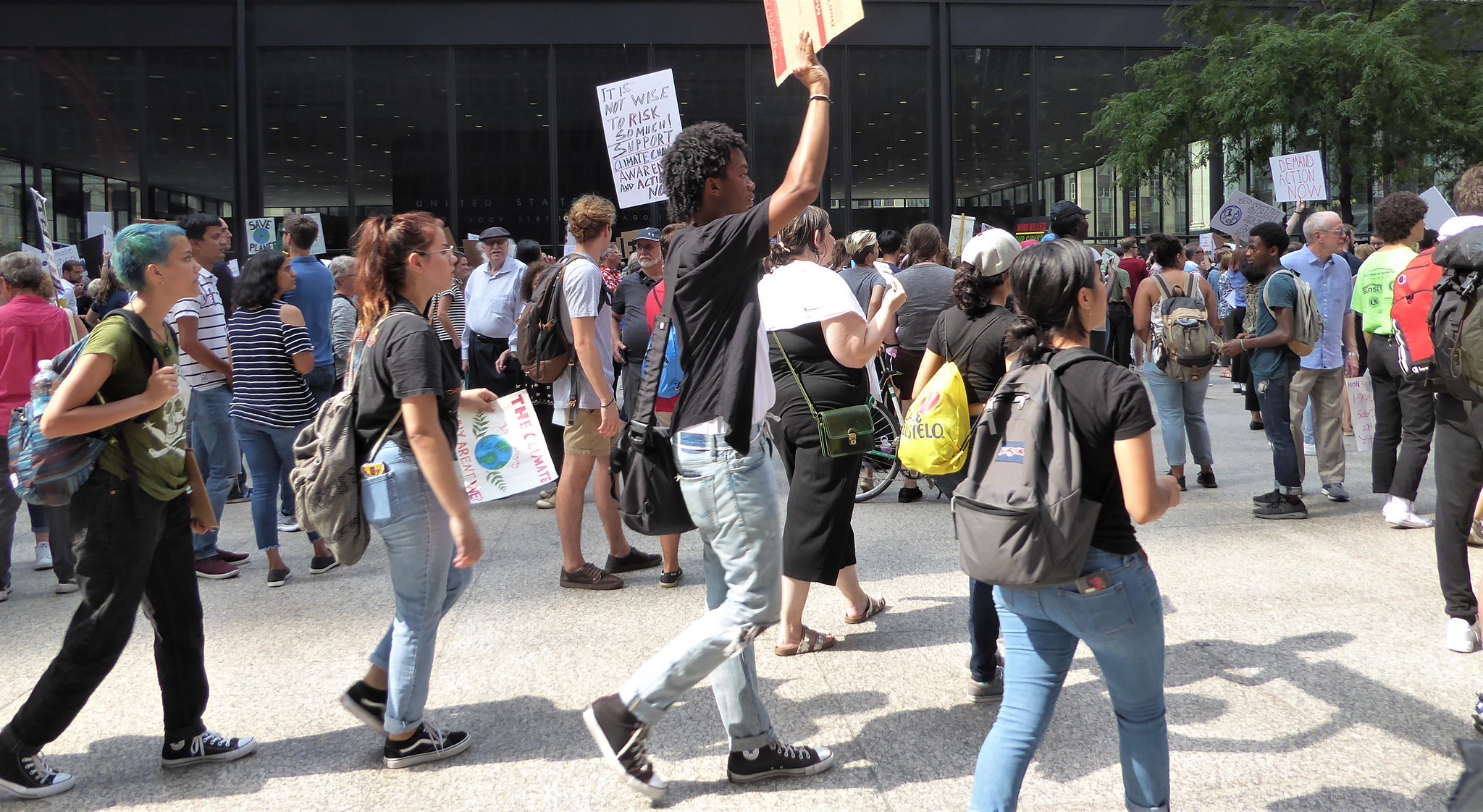Fear must not stop us from creating the world we deserve
By Ria Serebryakova and Carlos M. Duarte | June 1, 2021
Environmental and human health are closely intertwined. As the One Health paradigm suggests: healthy humans can only thrive in a healthy biosphere. But the world’s mounting environmental crisis has led to the emergence and rapid spread of “eco-anxiety,” defined by the American Psychological Association (APA) as “a chronic fear of environmental doom.”
Reports have found that 57% of American teenagers and 77% of British teenagers feel anxious and fearful as a response to climate change. The COVID-19 pandemic has further exacerbated eco-anxiety by depriving many of us, confined for our own safety, from regularly experiencing the healing proximity of nature.
Eco-anxiety involves not only fear, but can also induce an apathetic attitude towards our own futures. Drawn in by dark scenarios of our not too distant world, many young people are beginning to feel a sense of pointlessness to their roads ahead.
We argue, therefore, that the greatest risk to the planet does not rest on the climate and biodiversity crises, but on people giving up on the dream of a healthier, cleaner and safer planet. We believe, it is then when the planet, and our future, will be broken.
If we fail to envision this better world that’s within our grasp, we risk driving people away from fighting for it. People instead could become subsumed in hopelessness and despair, as their efforts appear insignificant compared to the scale of the threat. This is why we believe eco-anxiety might be the most insidious of threats, because it harms not just our mental health but the health of the planet itself.
But it’s not just young people feeling anxious and depressed over the threat of and global response to climate change. This is an emergency affecting all generations. Independently, we both have found relief and hope by turning our frustrations and anxieties into actions to deliver positive outcomes. One of us used her platform as a model in the fashion industry to campaign against plastic pollution, to push solutions for environmental problems and to create a more sustainable fashion industry. The other brought nearly four decades of ecological research to bear on a strategy to rebuild the abundance of marine life by 2050, while helping tackle climate change at the same time.

Turning frustration and anxiety into actions.
In order to solve this tremendous challenge, we need to create a movement built on shared scientific and technological knowledge that delivers hope by imagining a possible and positive future and the actions required to get there. We can transform fear into empowerment but we need tenacity, entrepreneurship, resources and a commitment from all generations.
A regenerative society heals the planet and encourages young people to seek the future they want through a path of justice and equity, one that underpins their health and mental wellbeing. A collaborative effort by people across generations can get us there.
The pangs of guilt related to not doing enough can be alleviated by connecting problems to particular solutions, and focus on positive achievements to finally become a part of the solution. This requires that barriers that deter people from pursuing climate and biodiversity solutions be demolished. These barriers include negative language and obscure acronyms that must be replaced by narratives that are more tangible for every citizen.
Z and alpha, our most technologically savvy and interconnected generations, can build on their unique capacities to heal, rather than exploit, a planet. They can undertake a systemic rethinking of the technologies they will master; repurposing sensor technologies, robotics and artificial intelligence operating across unprecedented global connectivity scales to repair a crippled planet and develop wealth and high-quality jobs rooted in positive planetary stewardship.
Humanity is facing a climate and biodiversity crisis. As a result, we are left in a situation demanding urgent action, with a very narrow window for success. As we progress towards that goal, we should celebrate small victories and learn from defeats, helping each other across generational lines to start a new fight every day. Where there is a will, there is a way.
Ria Serebryakova is a Russian fashion model and environmental activist based in New York
Carlos M. Duarte is a marine ecologist and Distinguished Professor of Marine Science at King Abdullah University of Science and Technology (KAUST), at Saudi Arabia and member of the Scientific Committee of Extreme E


